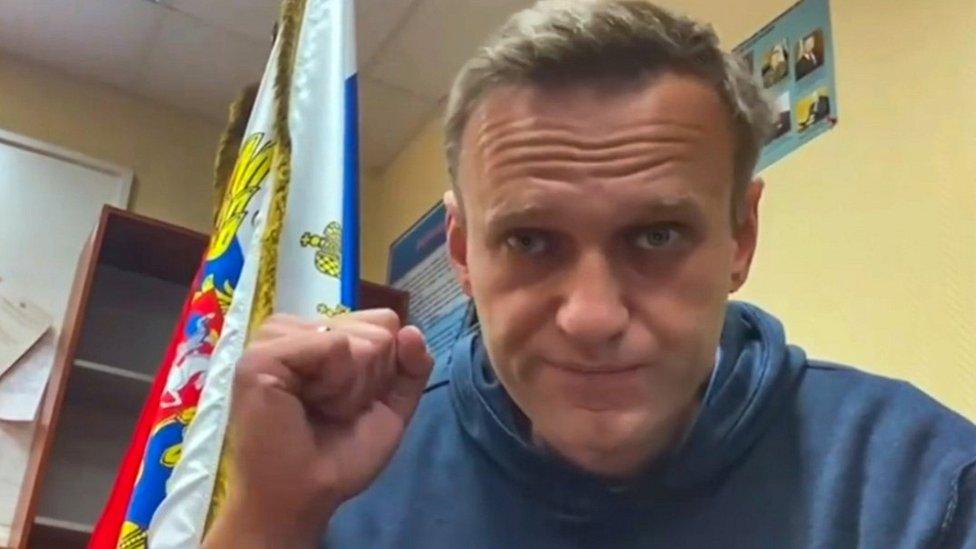Alexei Navalny: Russian opposition leader vows to continue fight
- Published
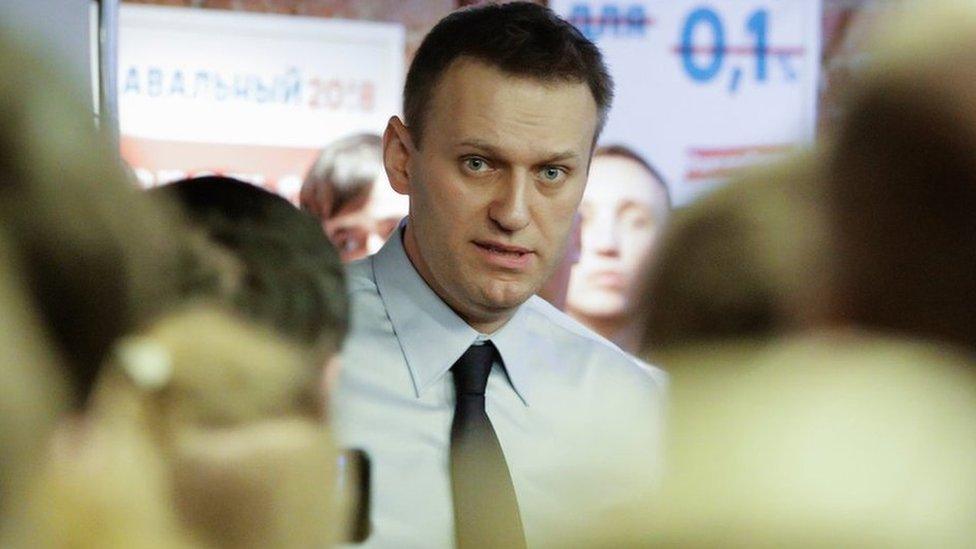
Mr Navalny says the accusations against him are politically motivated
Alexei Navalny fully expected the judge in Kirov to find him guilty. It's a rare case in Russia that ends in acquittal, and Mr Navalny argued from the start that the charges in this one were politically motivated.
Throughout the hearing on Wednesday he tweeted incredulously, mocking the judge for repeating the original verdict from four years ago almost word for word.
"He's even repeating the same mistakes," joked Mr Navalny, during a short break in proceedings.
Once he was sure the judge wouldn't exceed the prosecutor's request for a suspended sentence and put him behind bars, the activist confirmed that he planned to appeal. He also said he would go back to the European Court of Human Rights, which ruled when this case was first heard here in Kirov that he'd been denied a fair hearing.
Mr Navalny told the BBC he wanted to show how that finding had been "cynically" ignored back in Russia.
"Not only was the ruling not implemented, it was like they said - OK you overturned it in your honest court, but we'll just do the same again," he said.
As for the ban on running for president, Mr Navalny vowed immediately to fight that as well.
Alexei Navalny talks to the BBC about Russia and President Trump
"It says clearly in the constitution that only those who are in prison are banned. So I am not banned. For now," he explained to journalists in court.
Russian federal law, though, says those "deprived of their freedom" are ineligible for election.
A legal battle is now on the cards.
Given that the constitution also guarantees the right to peaceful protest, which is then denied by law, Alexei Navalny's chances do not look good.
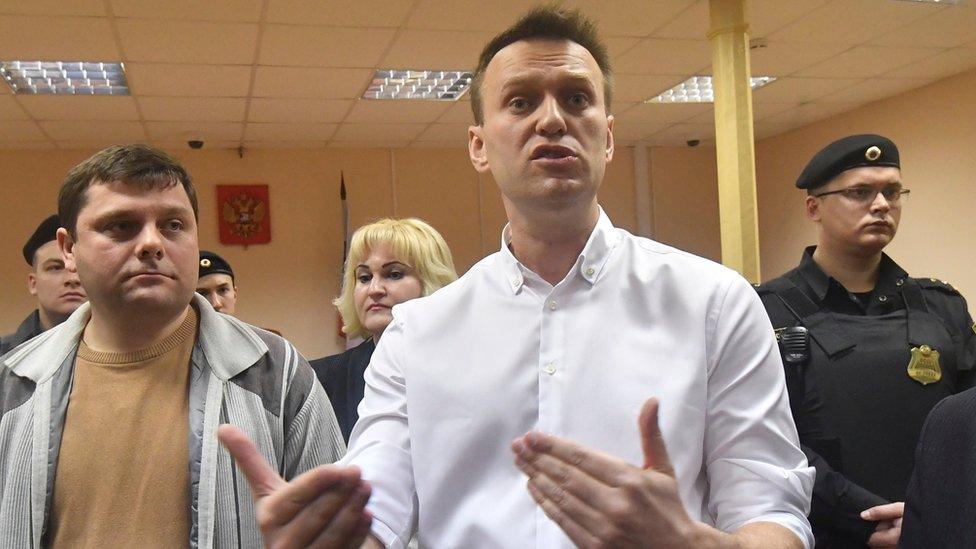
Mr Navalny talks to journalists in the courtroom in Kirov
But he plans to go on campaigning for the presidency in the meantime, determined to force his way onto the ballot paper. He says repeatedly that he wants to challenge Vladimir Putin's control of the Kremlin and expose what he claims is the "myth" that Mr Putin commands over 80% popular support.
So Mr Navalny opened his first campaign headquarters last weekend in St Petersburg, despite the imminent verdict in his trial, in a gesture of defiance.
Well over 200 volunteers queued down the block, ready for their first task of gathering the support signatures Mr Navalny would need to register to run for election.
That step has become a huge challenge for opposition candidates even in normal circumstances, and an easy way for the present authorities to weed out "undesirables" from the political race.
Now, with a conviction for embezzlement, Mr Navalny may even be banned from reaching the start line.
- Published8 February 2017
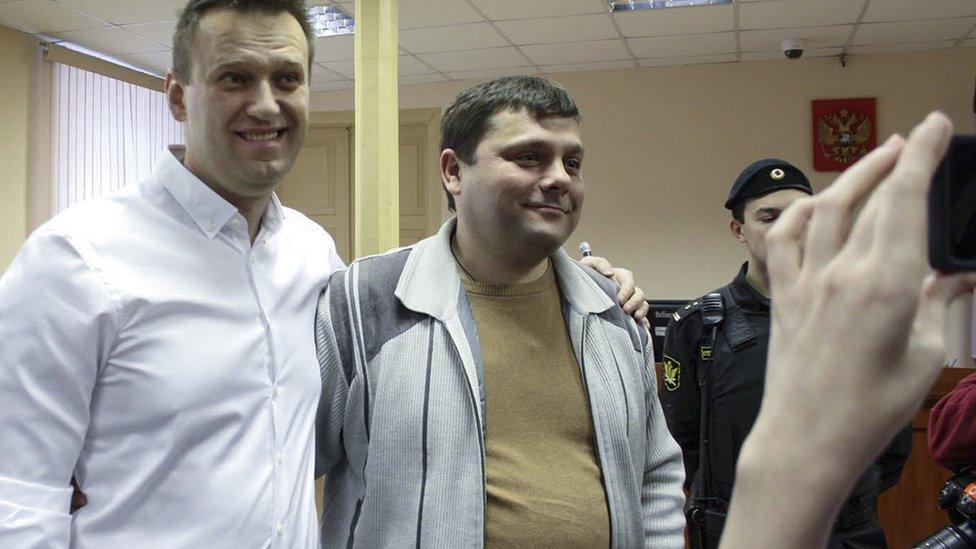
- Published23 January 2016
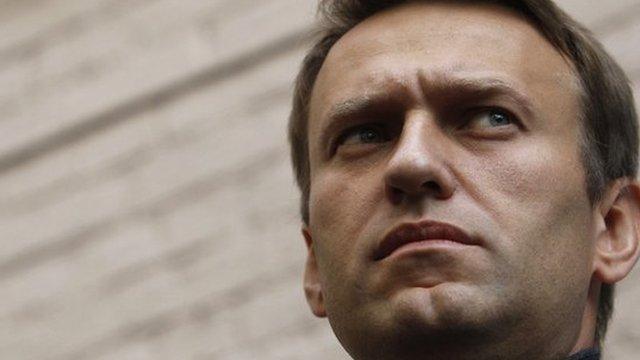
- Published16 February 2024
